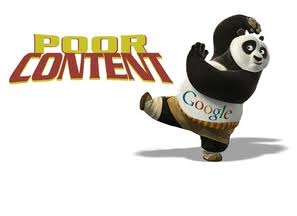Does Your Website Really Need SEO for Success – Is Social Media Gaining an Edge over SEO?
Search Engine Optimization (SEO) is considered an essential ingredient for online success. The favorite argument of SEO proponents is that there is no point spending time and money on creating a website if no one can find it. While this makes logical sense, it is perhaps necessary to evaluate if SEO is the only way by which to attract and increase traffic to your website.
There is a general tendency to believe SEO is the be all and end all of internet marketing. This is not completely true. Today, there are other avenues like social media marketing open to internet marketers, which give them the desired results.
The question as to whether it is possible for your website to do well without SEO is a difficult one to answer. The honest answer probably would be ‘no’. SEO is and will continue to be beneficial to websites.
 However, we have to keep in mind that things are changing fast in the internet marketing space. People are using alternative techniques like social media marketing for getting traffic to their websites. Does this spell the death of SEO?
However, we have to keep in mind that things are changing fast in the internet marketing space. People are using alternative techniques like social media marketing for getting traffic to their websites. Does this spell the death of SEO?
No. Atleast not anytime in the near future.
But it is worth looking at this topic in detail and understanding the ‘hows’ and ‘whys’ of this threat to SEO (if I may call it that). That is what this article aims to do.
Factors That Could be Responsible for SEO’s Fall from Grace
The first factor is the nature of SEO, which could be viewed as fulfilling only part of the objective of internet marketing. Closely associated with this is the reducing importance of link building, which is an important SEO strategy.
Secondly, the constantly changing search algorithms of Google make it difficult (not to mention expensive) to achieve a consistently high search engine ranking.
Thirdly (and perhaps most importantly), there are several strategies Google has up its sleeves to make the search process more effective and valuable to the searchers. Not many of these ranking factors are put into operation yet, so for the moment SEO is good.
But when these factors are finally put into play, it might make social media more of a “necessary” strategy to follow along with standard SEO practices.
Let us consider each of these factors in detail.
Nature of SEO
The aim of SEO is to optimize your website for search engines. The basic principle is to use certain techniques (called SEO tools) to make your website more attractive to search engines.

And when your website is displayed at the top of the search engine results page, the chances are more people will visit your website, increasing the traffic. So SEO increases traffic, but does not guarantee conversions, though it does increase the chances of conversions.
Link Building
Link building is an important SEO technique and refers to the number of external websites that link back to you. In general, the more back links you get, greater is your search engine ranking.

The idea behind link building was that websites that provide interesting, original content will be linked to by relevant websites. Thus the link was to be an indicator of the quality and relevancy of the website to the search and hence was considered an important factor by search engines in ranking the website.
This, however, led to the emergence of a link buying industry and the other kinds of spamming activities. All this effectively results in impairing the search quality. Google sat up and took notice.
The result was the Panda algorithm that in one stroke has completely revolutionized the way links were being built (although spamming continues to happen).

Google has now become very severe with ‘low quality sites’ and downgrades the search engines results of websites that link to such sites. Such sites invariably include those with little or no moderation on their comments or those which are full of ads. Popular article directories like ezine articles came under the category of ‘low quality website’ and it faced a penalty last year. So the importance of ‘commercial’ link building or even submission to article directories as an SEO strategy diminishes.
But the good old fashioned method of getting links to your website with great content still works and will continue to work for a long time.
Changing Search Engine Algorithms
Google, in a bid to crack down on black hat SEO and to keep search results relevant is constantly changing the parameters of search. What worked today may not work a year or even a month down the line. An example is the Panda algorithm, we discussed earlier.
For instance, Google may suddenly place greater importance on sites that have uploaded videos. So if you are relying solely on SEO for your website, you might be missing out if you do not have a video present on the page in question.

The constantly changing search algorithms mean you need to continuously keep tweaking your SEO strategy to maintain that top spot on Google. This is expensive and time consuming but is definitely rewarding.
One way to insulate yourself from Google algorithms would be to pay attention to the content on your website. Do not rely only on gimmicks to push you to the top spot. If your SEO strategy is coupled with original, relevant content that adds value to the reader, your search engine rankings will get the desired boost.
Google Strategies
- Google Personalized Search
Google is working out strategies to personalize the search results to users. So depending on factors like what the user has searched for earlier and where he is searching from, the results will vary. So it is very much possible that your website ranking may differ on different computers and with different users.
Another aspect of personalizing the search process could be the introduction of a ‘search filtering’ feature. Google may allow searchers the option to block results from particular sites (say, article directories), effectively negate SEO strategies that focus on these areas.
- Google Focus on Bounce Rates
We have learned time and again that it is only a matter of time before Google catches on internet marketing tricks. If Google observes consistently high bounce rates on your website, the obvious conclusion is poor user engagement and /or irrelevant content. This might results in a lowered ranking.

- Google Focus on Real Time Results
It is becoming increasingly clear to Google that information needs of searchers are time sensitive. So the relevant results on social networking sites like Twitter and facebook (that are obviously more current) may receive a higher ranking than your website.
The Power of Social Media
Perhaps as a direct result of all the above reasons, businesses have now turned their attention to social media marketing. The loss in traffic due to Google strategies, algorithm changes etc (which can be quite significant) has increased the popularity of social media sites.

You can advertise on facebook, post tweets on Twitter, run contests, start conversations, submit reviews… the list is endless. Social media is providing innovative opportunities to engage with customers.
Use sites like Twitter, LinkedIn and facebook to get your content out. Link back to your website. Your traffic will be much higher or at least equivalent to what you receive with traditional SEO.
In Conclusion
We looked at various factors that significantly reduce the impact of SEO in directing traffic to your website and we have discovered the power of social media marketing.

At the moment it would be wrong to say that one scores over the other or that one should be totally discontinued in favor of the other. The fact is SEO is good and still continues to make money. The best strategy is to have a mix of SEO and social media marketing strategy. The proportion perhaps, will depend on the particular nature of your business and the customers you are targeting.
If you run an online business, our tested approach is to continue with traditional SEO (since this is what has worked for us time and time again) AND add a little bit of social media to your marketing. You would be surprised with the results you get!
Once again, this blog post is not written to create confusion in the SEO industry. We are just giving you our honest opinions on what’s working now and what the future seems to hold for us.
Do you think social media will ever make SEO redundant? Why or why not? Please do let us know!


Would enjoy hearing more on how we should think of bounce rate — especially when considering average page views per visitor and average time on site.
Hi David,
Thanks for dropping by. I did a post a while back on bounce rate, but maybe it’s time for an updated version which addresses all the latest changes. Thanks for the suggestion.